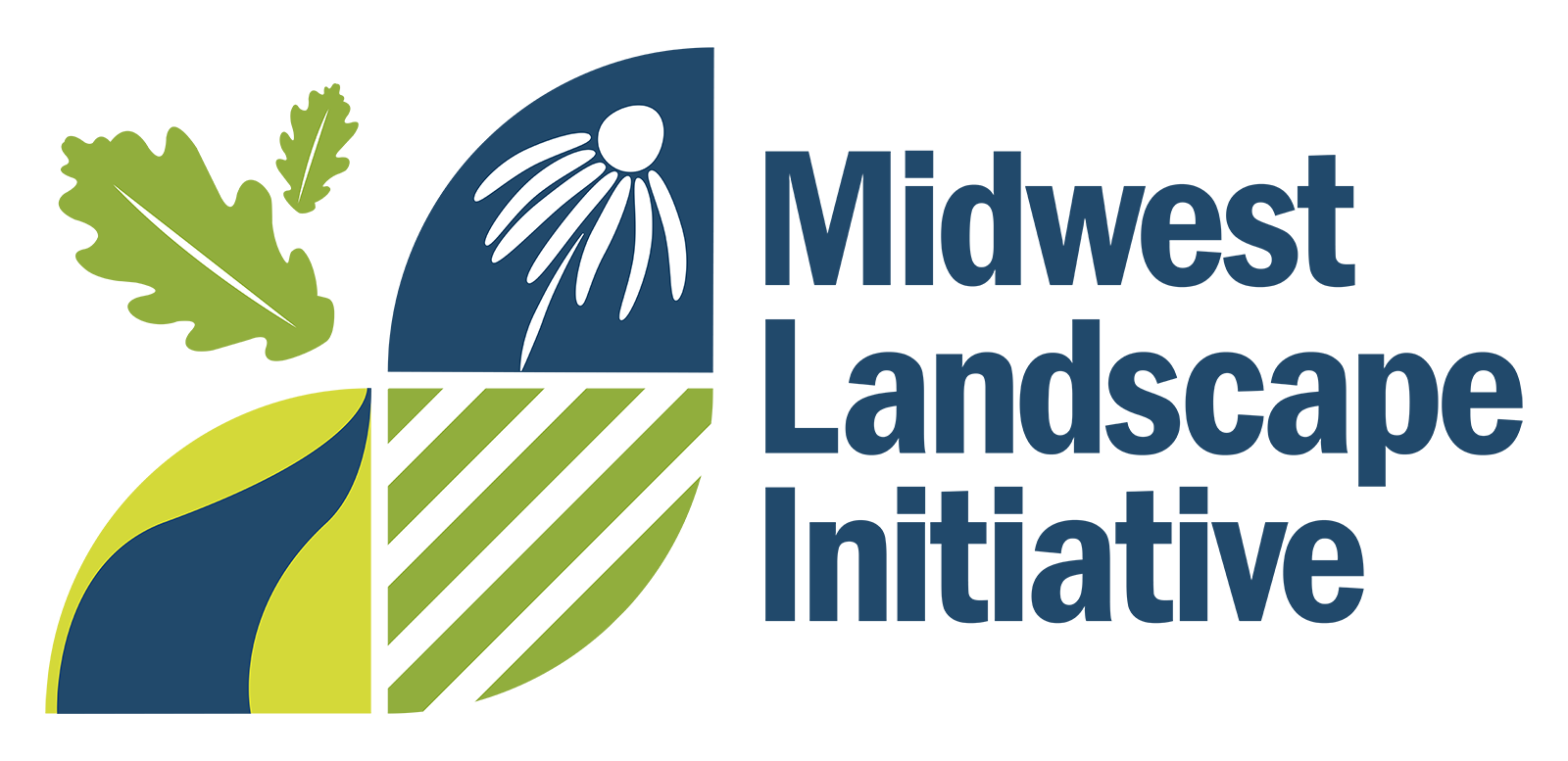This website uses cookies so that we can provide you with the best user experience possible. Cookie information is stored in your browser and performs functions such as recognising you when you return to our website and helping our team to understand which sections of the website you find most interesting and useful.
Working across boundaries to conserve our shared nature
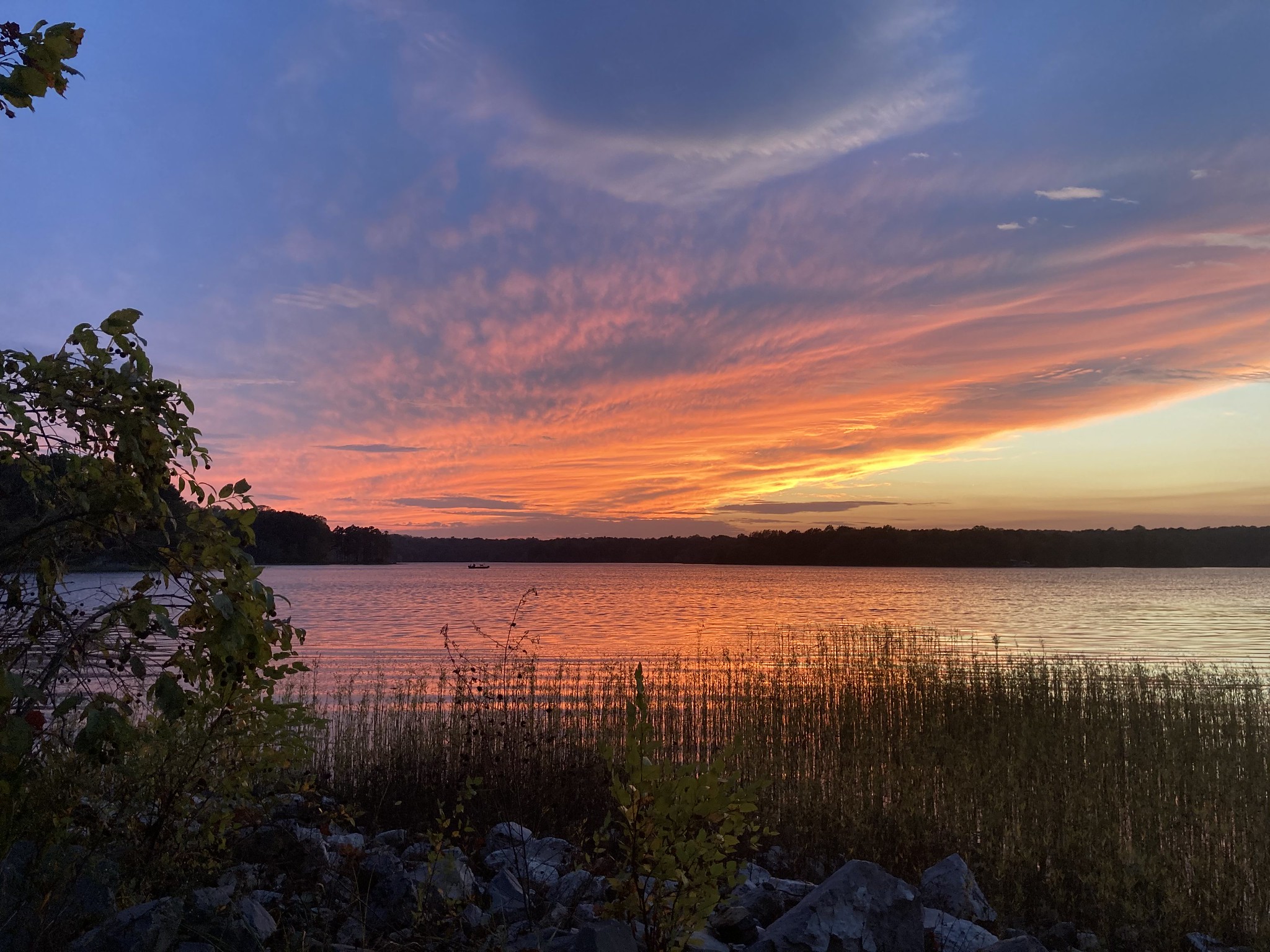
- Date:
- Author: Daniela Cortez, Student Trainee
With increasing threats to the environment such as climate change and habitat loss, increasing the health and diversity for our midwest lands and waters is dependent on our ability to collaborate. The passionate staff of the Midwest Landscape Initiative, including agency team members from Science Applications, and its dedicated partners are here to protect our biologically diverse communities. This article will dive into the testimonials of a few of our initiative’s members to highlight how people with different backgrounds are crucial to help conserve our shared nature.
In 2018, the Midwest Landscape Initiative was stood up by the U.S. Fish and Wildlife Service, Midwest Association of Fish and Wildlife Agencies member states, and the U.S. Geological Survey to make a space for diverse partners to come together and collaborate across boundaries. The initiative’s goal is to identify shared conservation and management priorities that require the development of scalable collaborative solutions to achieve healthy, functioning ecosystems.
A big part of what makes the Midwest Landscape Initiative so effective is the unique perspectives that each team member brings to the table. There are three members from the Midwest Landscape Initiative who will be featured in this article. Although all of the initiative’s members are exceptional, I’d like to focus on Lorisa Smith and Alex Wright, and center my own experience working alongside them in this collaborative. Within the core of this story is how federal, state and undergraduate employees, like myself, are creating a strong team at the Midwest Landscape Initiative.
The U.S. Fish and Wildlife Service recognized that the collaborative approach of the initiative is best when it’s shared with each new generation of conservationists. With this thought in mind, memorandums of understanding were developed with the University of Texas at San Antonio, and other Minority Serving Institutions, to develop research opportunities and internships for students to work alongside professionals within our agency.
It was memorandums like these that got me into my position. My name is Daniela Cortez and as of May 2024, I have received my Bachelor of Science in Biology with a Minor in Chemistry from the University of Texas at San Antonio. I was hired as a student trainee in biological sciences in September of 2022 and recently completed my internship in May 2024. During my time I have been working closely with the Midwest Landscape Initiative on various projects.
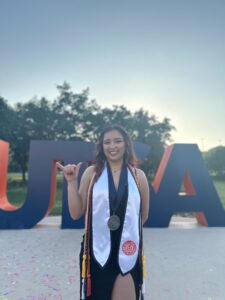
As a student, I have been able to bring a unique perspective on several topics, in particular, the One Health Initiative had caught my interest from the beginning. This initiative looks for ways to further integrate human, environmental and animal health as people have started to recognize that the health of the environment, humans, and animals are more interdependent than we may think.
As of now, my plan is to attend medical school and become a doctor. Some eyebrows may be raised questioning why I chose to take an internship with the U.S. Fish and Wildlife Service rather than in the medical industry. While I’m determined to study medicine, I also have an immense passion for conservation and research, and after working with the initiative, I can finally see how the two connect. The Midwest Landscape Initiative and U.S. Fish and Wildlife Service have allowed me to dip my toes into both of my passions. Now I know my dream is to be able to integrate the One Health Initiative into my work as I advance in my career.
I believe that I’ve been able to assist the Midwest Landscape Initiative in a distinctive way, as my two passions have allowed me to bring fresh ideas to the team. This collaboration also includes several team members who work for natural resource programs on the state level, such as Lorisa Smith, with the Missouri Department of Conservation. In addition to her role with Missouri, Lorisa is also staffed as a landscape conservation liaison by the Midwest Landscape Initiative and the Midwest Association of Fish and Wildlife Agencies, an organization of 13 state and three provincial midwest fish and wildlife agencies.
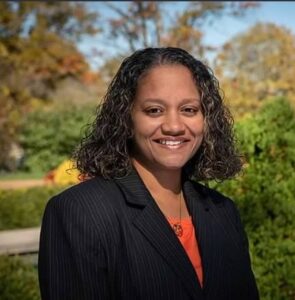
Lorisa says that she’s had a “unique opportunity to see first-hand the value the MLI provides to the states.” Together, we’re working to remove barriers to conservation actions. Lorisa expresses how exciting it is to be a part of the team and “see how the work moves forward in the state once the barriers have been removed.”
Lorisa, who holds a Master of Public Affairs from the University of Missouri, Columbia and a Bachelor of Arts in Political Science from Lincoln University, is equipped by her social science training to bring a new perspective to the work at hand. “Many of the Midwest Landscape Initiative’s team members come to the table with a natural science background,” however her own education and experience differ, as they focus on the social sciences including policy analysis, development and relationship building.
Differences in backgrounds and education allow us to have a more integrated approach as we formulate solutions and remove conservation barriers.
Another integral member of the Midwest Landscape Initiative team is Alex Wright. As a landscape science coordinator, Alex is a U.S. Fish and Wildlife employee in the midwest.
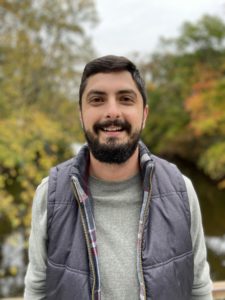
Alex acknowledges how “every individual has their own singular and unique perspective and skillsets.” He says, “We all see the world through our individual lens, shaped by the experiences we’ve had, people we’ve met and lives that we have lived. And there is value in that.”
Alex sees how the Midwest Landscape Initiative has a lot of different roles to be filled, and notes that “each requires a diversity of viewpoints, experiences and skillsets.” Using the analogy of a sports team, Alex questions if a successful basketball team, “would have a roster full of only point guards?”
He further explains how “Not only is it critical for us to have diverse perspectives and experiences within our organization, but it’s also just as, if not more, important that we listen to and value the diverse perspectives and experiences of the partners that we collaborate with.”
Testimonials like these from Alex, Lorisa, and myself, highlight the crucial role of incorporating diverse backgrounds while solving environmental challenges.
As the initiative continues to collaborate with more partners, the opportunity to work alongside people with varying backgrounds and experiences will only continue to grow and help the team to achieve their goal of helping to restore and maintain healthy ecosystems through people.

